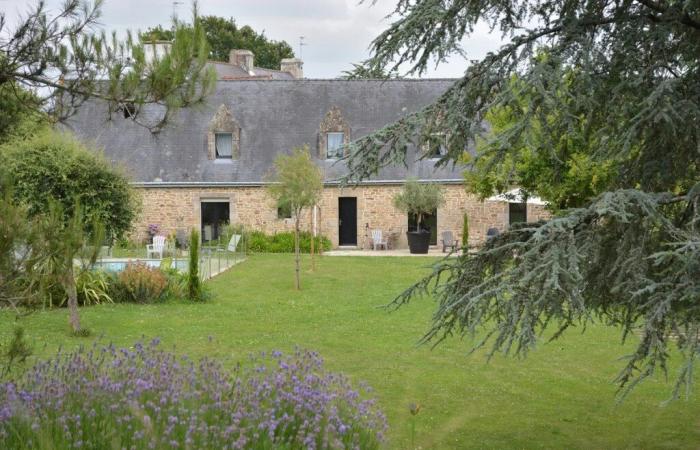
Published: 7:09 p.m. by Dolorès CHARLES
Gites de France Kervignac Penhoet
Credit : Yann Launay
The concern of Gîtes de France, established in Morbihan, while the “anti Airbnb” law has just been promulgated. They fear being the collateral victims of this law, and seeing their model weakened.
The anti-Airbnb law of Breton MP Annaïg Le Meur notably allows municipalities to more easily establish quotas for tourist accommodation, to try to preserve year-round rentals, but the Gîtes de France do not see this as a good idea. a good eye. For Yves Jéhanno, Gîtes de France offer real guarantees of quality to customers, and they have contributed to life and the local economy for 70 years.
“Roughly speaking, the economic weight of Gîtes de France in Morbihan is 117 million euros in economic benefits and 1,000 direct and indirect jobs, and 18 million euros in taxation goes directly to the State . Our owners have always contributed to territorial development by promoting all stakeholders: artisans, traders, local tourism providers. They have preserved the buildings thanks to tourism for decades.
Are we going to be able to have excursion tourists?
There are fewer and fewer hotels in Morbihan, there is no creation of campsites, and there we are going to ensure that there are fewer and fewer seasonal rentals. What are we going to do with these tourists? Are we going to be able to have excursion tourists? That is to say, they will arrive in the morning and leave in the evening, and they will not have consumed.”
Credit : Yann Launay
For Yves Jéhanno, director of Gîtes de France in Morbihan, the law is not entirely to be thrown away, certain provisions are welcome, such as the obligation to declare tourist accommodation, or the strengthening of energy performance obligations but the generalization of quotas could prove counterproductive.
“If the owner is forced to make a choice, he will say about my three accommodations, I can only keep two, what am I going to do with the third? We will offer him to put it in the year except that throughout the year, there is no security in terms of payments, rents, and there is deterioration…
This will be transformed into a second home, benefit for the municipality: zero.
We have several owners who were renting for the year, and who came to us telling us that they were going to stop for the year because they had found the accommodation in a pitiful state… What is what will the owner do with it? He will resell it and people who want to have a foothold by the sea will buy it, and it will be transformed into a second home, benefit for the town: zero.”

Gîtes de France Kervignac Penhoet
Credit : Yann Launay
The Gîtes de France fear the establishment of quotas without consultation, while for Yves Jéhanno, the effectiveness of these quotas is not guaranteed, and that the owners of tourist accommodation are not the only ones responsible for the crisis of accommodation. “We have an area that is extremely attractive, so prices are soaring. There is an influx of second homes… and a shortage of social housing. But it is not our fault.
Gîtes de France also have ideas
We are not against the policy that is being put in place, what we would like is to sit around a table with elected officials, with economic and tourist stakeholders, to discuss the problem housing, and try to find the right solutions. Every year, for example, we have around a hundred owners who stop, around a hundred accommodations, and we can perhaps transform them into year-round residences with security for the payment of rent.”
The law “anti-Airbnb“, supported in particular by Finistère MP Annaïg Le Meur, should come into force on January 1, 2025.





